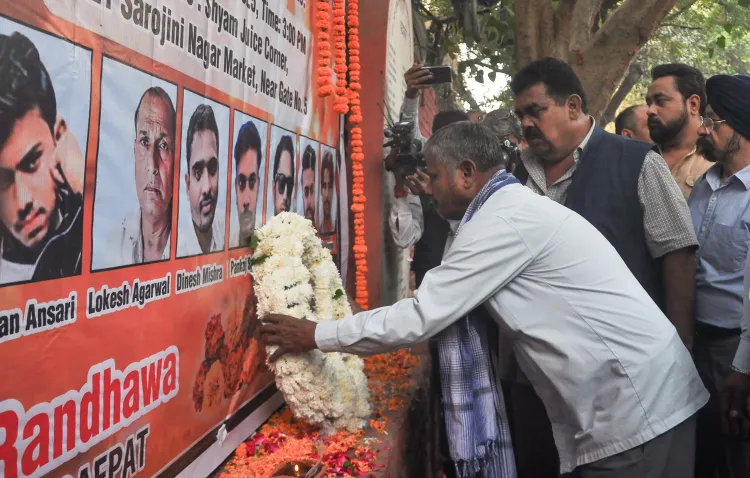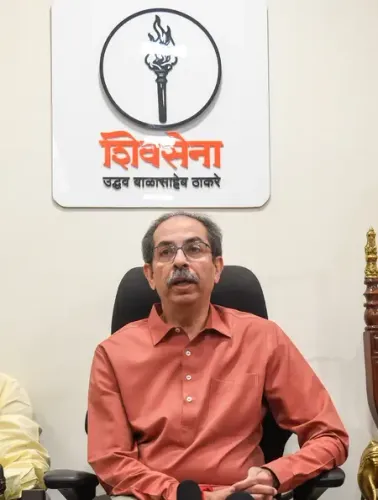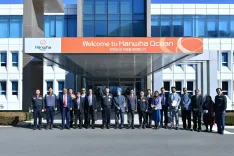Did ISI Operate from Afghanistan and Other Nations in the Red Fort Blast?

Synopsis
Key Takeaways
- 12 fatalities and numerous injuries reported in the Red Fort blast.
- ISI allegedly coordinated the operation from Afghanistan and Turkey.
- Pakistan aims to obscure its involvement in terrorist activities.
- India's response includes treating future attacks as acts of war.
- The investigation reveals a broader strategy involving the establishment of terror modules.
New Delhi, Nov 15 (NationPress) Investigations into the Delhi Red Fort blast, which resulted in the loss of 12 lives and left numerous others injured, have uncovered that the ISI deliberately orchestrated the operation from outside Pakistan, utilizing other nations to orchestrate and implement the attack.
As the investigation unfolded, links to Afghanistan and Turkey emerged, indicating minimal involvement from Pakistan in establishing the Faridabad module and executing the blast.
Officials from the Intelligence Bureau have noted that this strategy was a calculated move, as Pakistan aimed to obscure its connection to the incident.
This approach correlates with India's reaction to the Pahalgam terror attack, wherein India launched 'Operation Sindoor' and declared that future terrorist activities would be regarded as acts of war.
Additionally, Pakistan is currently under examination by the Financial Action Task Force (FATF). Due to its precarious financial condition, it is imperative for Pakistan to avoid being placed on the Grey or Black List.
The ISI initially designated Maulvi Irfan Ahmed, a resident of Jammu and Kashmir, to lead the establishment of the module. He was responsible for recruiting individuals from within India, which facilitated the formation of the module in Faridabad.
In a calculated move, the ISI selected handlers for Ahmed from a Jaish-e-Mohammad cell established in Afghanistan in 2021.
Ahmed, along with other individuals implicated in the blast, maintained constant communication with handlers based in Afghanistan, effectively eliminating any traces back to Pakistan by incorporating modules from Afghanistan.
The investigation has also uncovered a connection to Turkey involving the module and its participants.
The Jammu and Kashmir Police have requested a Red Corner Notice (RCN) against Dr. Muzaffar Rather, who is believed to be in Afghanistan. Alongside his co-accused, Dr. Muzammil Ahmad Ganaie and Dr. Umar Nabi, Rather traveled to Turkey in 2021, where they spent 20 days and reportedly engaged with ISI operatives there.
This aspect of the investigation remains ongoing, with strong indications that the ISI directed them to liaise with its assets in Turkey to assist in establishing the module.
While the Turkey connection is being explored, the Directorate of Communications Centre for Countering Disinformation has asserted that its territory is not being utilized for radicalization associated with such operatives.
However, Pakistan's strategy of employing other nations to orchestrate attacks against India is not a new phenomenon. Historically, it has leveraged Afghanistan multiple times for strikes against India, and currently, it is reportedly training terrorist groups in Bangladesh to execute operations within West Bengal and the northeastern states.
Officials indicate that it is unsurprising that Pakistan is utilizing external countries to carry out attacks in India.
The Faridabad module, affiliated with Jaish-e-Mohammad, represents one of the most significant operations the ISI has conducted in recent times. This module’s objective was not merely a singular act of violence but is part of a broader strategy from Pakistan.
Intelligence Bureau officials have stated that the ISI has been planning to establish more such modules composed of white-collar terrorists in various regions of India. There are intercepted communications that clearly indicate the ISI has been leveraging its assets in other countries to further this agenda.
The ISI and its operatives based in Pakistan do not communicate directly with their counterparts in India. Instead, they instruct their handlers in Afghanistan and other nations to maintain contact with Indian operatives. This is designed to ensure that during investigations, no direct communications from Pakistan are detected, officials emphasize.









